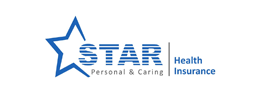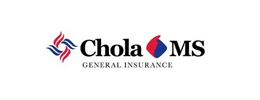Last updated on: September 19, 2025
Section 80D of the Income Tax Act allows individual taxpayers in India to claim tax deductions on premiums paid for health insurance policies for themselves, their family, and parents. Under this section, deductions up to ₹25,000 per annum are available for insurance of self, spouse, and dependent children, and an additional ₹25,000 for insuring parents (₹50,000 if parents are senior citizens). If both taxpayer and parents are senior citizens, the total deduction can go up to ₹1,00,000. Payments for preventive health check-ups within the overall limit are permitted up to ₹5,000. The deduction is available for payments made by any mode except cash (except for preventive health check-ups). Section 80D aims to promote health insurance coverage and reduce out-of-pocket medical expenses by offering significant tax benefits to policyholders.
Section 80D of Income Tax Act is a special Indian tax provision that permits taxpayers to deduct the amount of premiums paid on health insurance policies. It applies to individuals and Hindu Undivided Families (HUFs). This section is aimed at encouraging the Indian citizens to get health insurance cover and offer financial relief by reducing the taxable income. These rules continue to form an important part of personal tax planning in the assessment year 2025-26.
Health insurance is no longer an optional investment. As healthcare expenses and medical emergencies continue to soar, Section 80D deduction gives you two benefits in one- it motivates you to take care of your family health and reduces your tax burden.
Did you know that? The average medical inflation in India in the year 2025 is almost 12 percent and this is why medical insurance is more important than ever.
Section 80D deduction is available to you in case:
Arun is a salaried employee in Bengaluru, who pays a health insurance premium on himself, his wife, two children, and his parents who are senior citizens. The premiums are all paid online by using online banking and thus they are subject to Section 80D deduction.
| Insured Persons | Maximum Deduction Allowed (Rs) |
|---|---|
| Self, Spouse, Children (below 60) | 25,000 |
| Parents (below 60) | 25,000 |
| Parents (above 60) | 50,000 |
| Self, Family (above 60) | 50,000 |
| Preventive Health Checkup | 5,000 (Included in above limit) |
In the conditions of the present rules in 2025:
Expert Insight: You cannot claim Section 80D deduction even though you are paying health insurance of your in-laws. It only extends to your parents, spouse and dependent children.
You may deduct:
Q: Can critical illness or top-up plans premium be claimed under Section 80D?
A: Yes, any health insurance product, such as super top-ups, critical illness policies, are eligible under Section 80D–provided it is taken on covered relations.
Did you know? The urban Indian females are increasingly becoming the holders of independent health policies of their parents as compared to the past years. This also assists them in maximising their Section 80D advantage.
Priya, age 34, paid Rs 22,000 for her own family plan and Rs 40,000 for her father (age 65). She says Rs 22,000 and Rs 40,000- total Rs 62,000 under Section 80D.
Yes, policies purchased via online marketplaces are eligible as well as long as the insurer is registered with IRDAI. Online comparison of plans in 2025 provides you with a broader selection, lower prices and immediate issuance of policies. Record the transaction evidence or online receipt at all times.
Insider Tip: Comparing deductibles, coverage features, and IRDAI registration is easy when you use online portals before making a decision.
Q: Do I have to pay the premium in one month and claim Section 80D?
A: Yes, so long as the aggregate premium is paid in the financial year, it can be split over months.
| Feature | Section 80D | Section 80C |
|---|---|---|
| Purpose | Health Insurance | Investments & Savings |
| Qualified Payment | Premium and health checkup | PPF, NSC, ELSS etc. |
| Maximum Deduction on Individual | Rs 75,000 | Rs 1,50,000 |
| Family & Parents Covers | Yes | Mostly individual |
Section 80C is more general, whereas Section 80D is more specific to promote the use of health insurance.
Section 80D assists in claiming tax benefit on health insurance premium on key family members such as senior citizen parents.
It promotes a regimented attitude to health financing particularly in the face of increased healthcare inflation.
The first time I made a claim under Section 80D, I found the process to be intimidating- but it was simple. This made the process of filing the return easy since all payments were done online and the receipts were kept in digital form. The whole deduction as shown in my ITR and saved me on the total tax outgo. Since the health expenses are increasing in 2025, this deduction has a considerable effect on the annual savings.
Think of the Sharma family. Mr Sharma, 45 years, pays:
Sharma claims:
Their annual taxable income is decreased and they are really relieved financially.
Did you know? There are instances when the income tax department demands age evidence of parent policies. Carry with you a copy of their official ID.
Q: Is the limit reset when the premium is paid on a multi-year policy?
A: In the case of multi-year policies, the deduction is allocated equally over the years covered, according to the premium apportioned on an annual basis.
Expert Tip: A lot of policyholders overlook claiming the cost of preventive health checkups under Section 80D. Keep all your medical bills and claim up to the permissible Rs 5,000 in a year.
Section 80D of the Income Tax Act, in effect for 2025, allows you to claim tax deductions for health insurance premiums paid for self (including spouse and kids) and parents (especially benefiting senior citizens). Also covered are preventive health checkups, within the overall cap. Make sure that all the insurance premium payments are done online, keep the receipts well and choose your plans after comparing online. Avoid the usual pitfalls, and refer to the specific rules in order to save as much as possible this year.
Q: I am not dependent on my parents, so can I claim Section 80D in case I pay premium on behalf of my parents?
A: No, there is no need to be dependent. You can get the tax deduction under Section 80D as long as you pay their health insurance premium.
Q: What happens when my parent becomes 60 in the financial year?
A: In case your parent reaches 60 years at any point of time in the financial year, you are allowed to claim the higher deduction of Rs 50,000.
Q: Is group health insurance premium claimable under Section 80D?
A: If you pay to enhance your group health insurance or buy an additional cover yourself (not employer), you can claim the deduction. The premiums are not eligible when paid by the employer.
Q: Do NRI taxpayers have a right to Section 80D deductions?
A: Yes, the non-resident Indians can also avail Section 80D deduction.
Q: What happens when I want to compare premiums and policies and purchase one?
A: Go to credible online insurance exchanges that display features, premiums, and purchase links side by side—it is easier to select the appropriate health policy and optimise your Section 80D deductions.












How could we improve this article?
Written by Prem Anand, a content writer with over 10+ years of experience in the Banking, Financial Services, and Insurance sectors.
Prem Anand is a seasoned content writer with over 10+ years of experience in the Banking, Financial Services, and Insurance sectors. He has a strong command of industry-specific language and compliance regulations. He specializes in writing insightful blog posts, detailed articles, and content that educates and engages the Indian audience.
The content is prepared by thoroughly researching multiple trustworthy sources such as official websites, financial portals, customer reviews, policy documents and IRDAI guidelines. The goal is to bring accurate and reader-friendly insights.
This content is created to help readers make informed decisions. It aims to simplify complex insurance and finance topics so that you can understand your options clearly and take the right steps with confidence. Every article is written keeping transparency, clarity, and trust in mind.
Based on Google's Helpful Content System, this article emphasizes user value, transparency, and accuracy. It incorporates principles of E-E-A-T (Experience, Expertise, Authoritativeness, Trustworthiness).